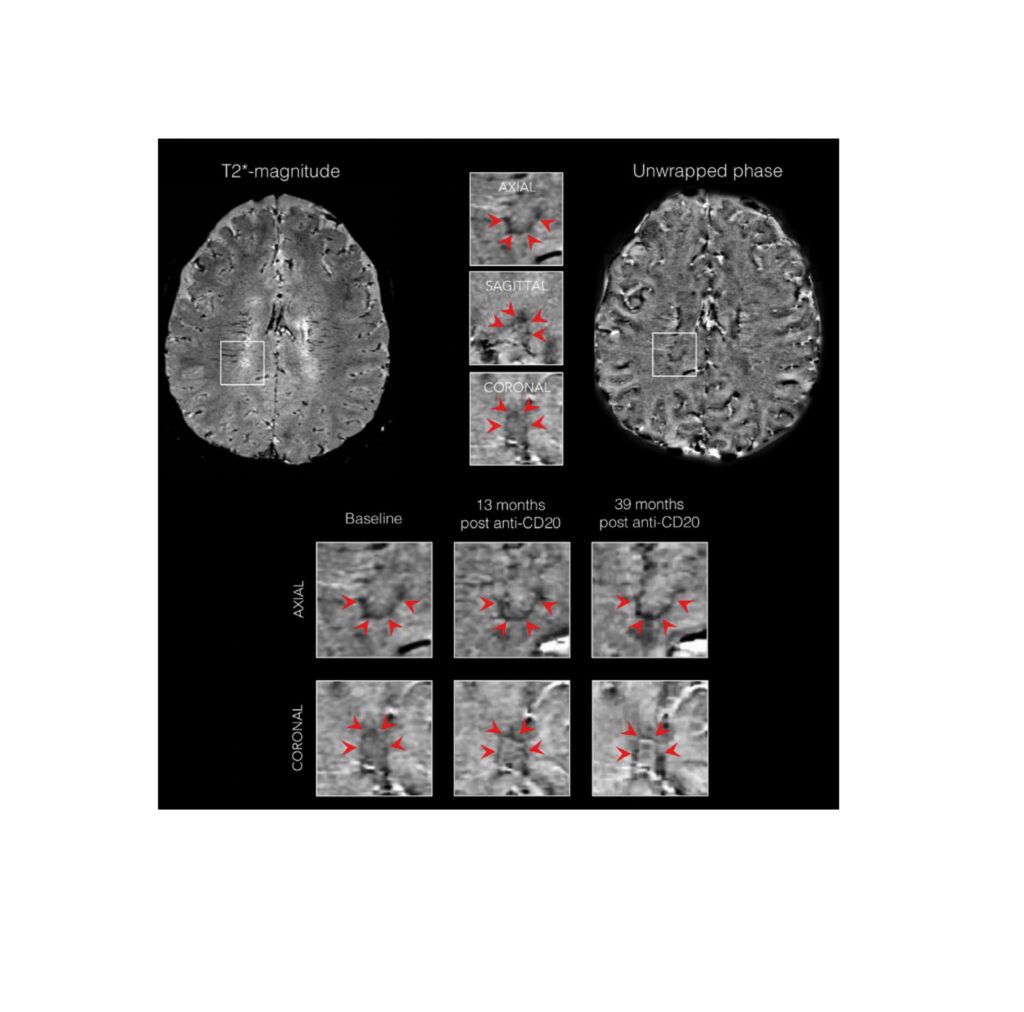Chronic active lesions (CAL), a neuropathological finding of multiple sclerosis (MS), are a very important predictors of severity and progression of the disease, including progression independent of relapse activity (PIRA). In the other hand, a possibility to study “in vivo” the CAL is the evaluation of paramagnetic rim lesions (PRL) which can be detected using susceptibility-sensitive MRI. Maggi et Al. combined a study of the impact of in silico B-cell depletion in the CAL with an analysis of the longitudinal presence of PRL in anti-CD20-treated patients, showing that:
- CD20 B-cell (4.3% of all lymphocytes in CAL) depletion affects microglial genes involved in iron/me metabolism, hypoxia and antigen presentation
- T-cell compared to CD-20 lymphocyte and plasmablasts depletion, had the greatest impact on the immune gene regulatory network at the CAL
- the paramagnetic border lesions after a 2-year follow-up on MRI are not completely resolve after anti-CD20 treatment
This cutting-edge work demonstrated that one of the most effective MS treatment (anti-CD20 therapies that greatly reduce the clinical/radiological inflammatory activity of MS) does not completely resolve the chronic active lesions, emphasizing that new studies will be needed to find existing or new molecules that can act on the formation and resolution of chronic active lesions in MS patients.

